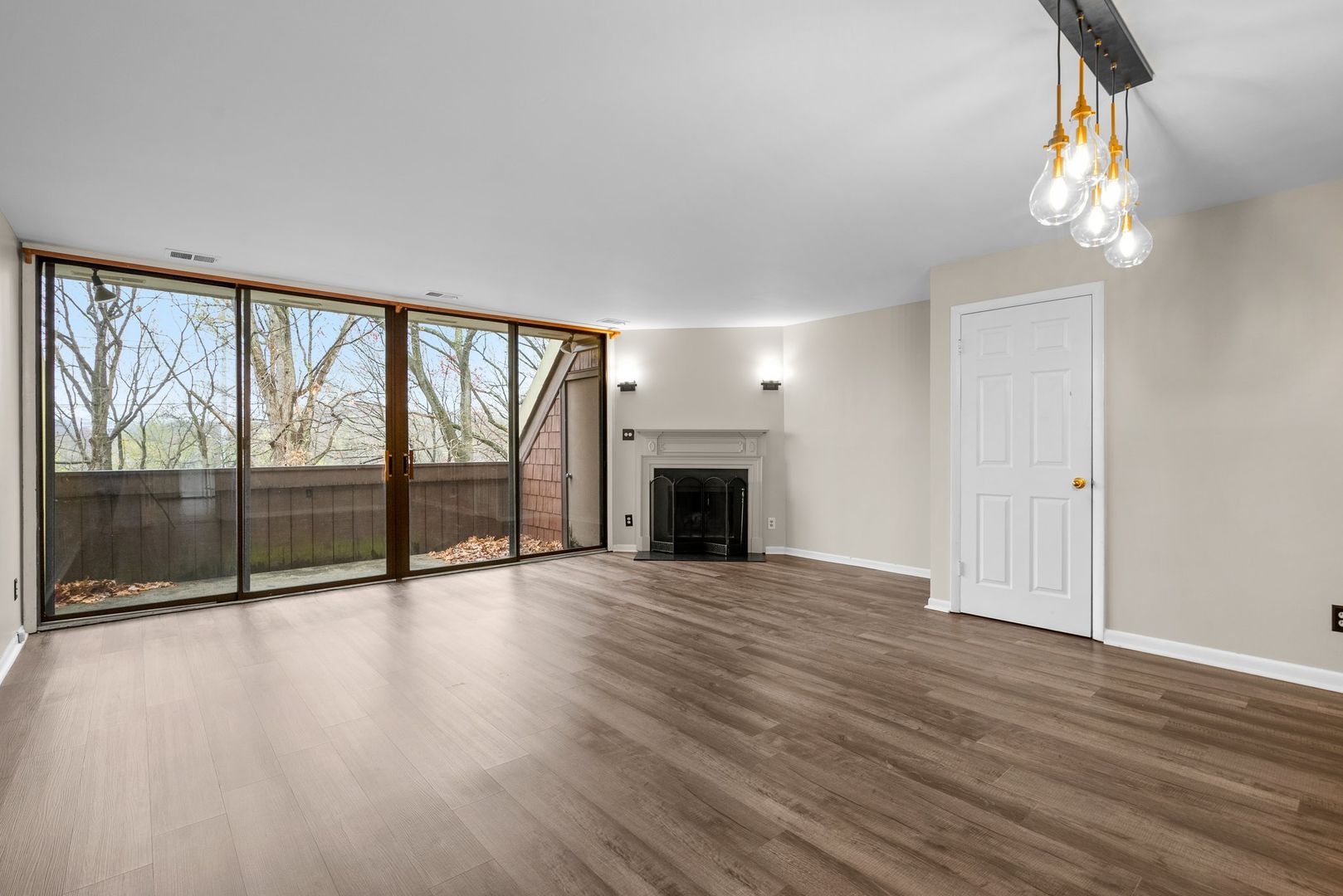VACANCIES
YOUR LARGEST POTENTIAL COST
A common remark that we hear is that when a general maintenance request comes in from a tenant, oftentimes the landlord will say "well yes that door is sticky but we lived with it for 15 years, the tenant can deal with it too." And the landlord has a good point, they did not mind the sticky door and it is not essential to the functionality of the home so why should it be fixed? Renters and buyers in our market area (DC Metro) have much higher expectations than say, renters 20 years ago and they are much more aligned to what buyers expect on the sales market. They want the homes fresh, clean, and upgraded and the kicker is - they can find that elsewhere for the same price. Yesteryear's renters are not today's renters.
As an owner of a property and a Landlord, we typically find that when a client leaves the property they have it showing in great shape because of course they still live there, then when the Client leaves the property we advise that they have it professionally cleaned and prepped for the new tenant, many of our clients follow this advice and leave a superior looking product to be marketed on the open rental market, and that is rewarded by a property that rents faster and for more money (there are other factors at work there including time of year but that is another topic to discuss). However when the next leasing cycle comes around, the property may not be showing in as good as condition. Perhaps your tenants don't tidy the home as well as you did, or they have begun packing and the home is cluttered. These are things that are beyond our control and while your Chambers Theory real estate agent will meet the tenant at the property and go over expectations, there is still a lot of uncontrollable factors that we must contend with. What we can control is setting expectations for the next tenants to come around and making sure that the property will be ready for your next tenant and that you'll continue to have a successful tenant/landlord relationship and hopefully keep the next tenant's long term. So how is this to be accomplished?
Chambers Theory visits your property before it goes on the market to document the current condition and note any possible security deposit issues as well as general maintenance that may be needed regardless of whether it is a deposit issue or not. These comments will be shared with you before your property goes on the market. Hopefully the news will be good and you had the perfect tenant who never wore shoes in the house and didn't hang a thing on the wall and never cooked a day in their life, but realistically that's not going to happen. Realistically, the agent is going to say the paint in the high traffic areas is looking shabby, that the appliances are about six years old and look dated, that the carpet is starting to show wear and tear. Perhaps some of that might be a deposit issue but it is unlikely. General wear and tear includes scuffs on the walls and slight bunching of the carpets, these are items you cannot charge for but they will have a negative impression on a new prospective tenant.
As a Landlord you are a small business owner. Your product is your house and as such there are costs associated with maintaining your product. Many of these items can be written off on your taxes as expense to maintain your investment. It should not be looked upon as a negative that you must spend money to maintain it, it's a reality of all business owners and an opportunity to invest some money in your property for the return of a higher qualified tenant who will better maintain your property. We have a saying, a rat's nest attracts rats and the last thing we want is for your house to show as a "rats nest."
Chambers Theory recommends that Landlords consider painting the property (complete painting not touch up which often times looks worse than if you had done nothing at all) at least between every two tenants but it is highly recommend it be done between every tenant. Sometimes this is not necessary because you had that tenant we mentioned above who never hung a thing on the wall, in that case BONUS, but it is better to expect, that it be done every time. Occasionally you may be able to deduct some from the tenants deposit but this should not be an expectation either.
We also recommend setting the right precedent and requiring a property be professionally cleaned completely (not just carpets as required in the lease) not only when you leave but added to the lease as a requirement for all future tenants. This again is about ensuring a level of care is put into making sure the property will be turned over to a new tenant in the best condition it can be. Lastly, carpets are another common item to keep an eye on. As it stands they are required to be professionally cleaned between tenancies. Even with a professional cleaning, it should be expected that carpets will need to be replaced between every two to three tenancies. Again the wear and tear that happens just from tenants moving in and out, means they might not last as long as they would have had you lived in the house the entire time. Carpet replacement is not a huge expense but makes a BIG impact when a prospective tenant sees brand new carpet or notes in a listing that the carpet will be replaced before they move in.
The next level of recommended maintenance is making upgrades to properties that don't necessarily effect the functionality as much as the items listed above. This includes adding granite countertops to a kitchen and/or bathrooms, updating outdated light fixtures, and even updating cabinets among other things. These items can be more costly but last longer and will be instrumental in helping rent your property for quicker and more money. Tenants are looking for modern, updated products - basically the same as they expect as a Buyer, and for low investment value you can update these items to help you achieve your rental financial goals and eventually your sales financial goals.
We have found that properties that were updated and showed well were always the first ones to rent, and the only ones to rent for more than they had the year before. Properties that were outdated or not cleaned (including painting/carpet) properly were the ones to sit for longer than normal days on market and eventually rent for the same or less than in previous years. Clients that did take the initiative to update their properties during tenancy and were rewarded with longer term tenants who were paying more and were more qualified.


